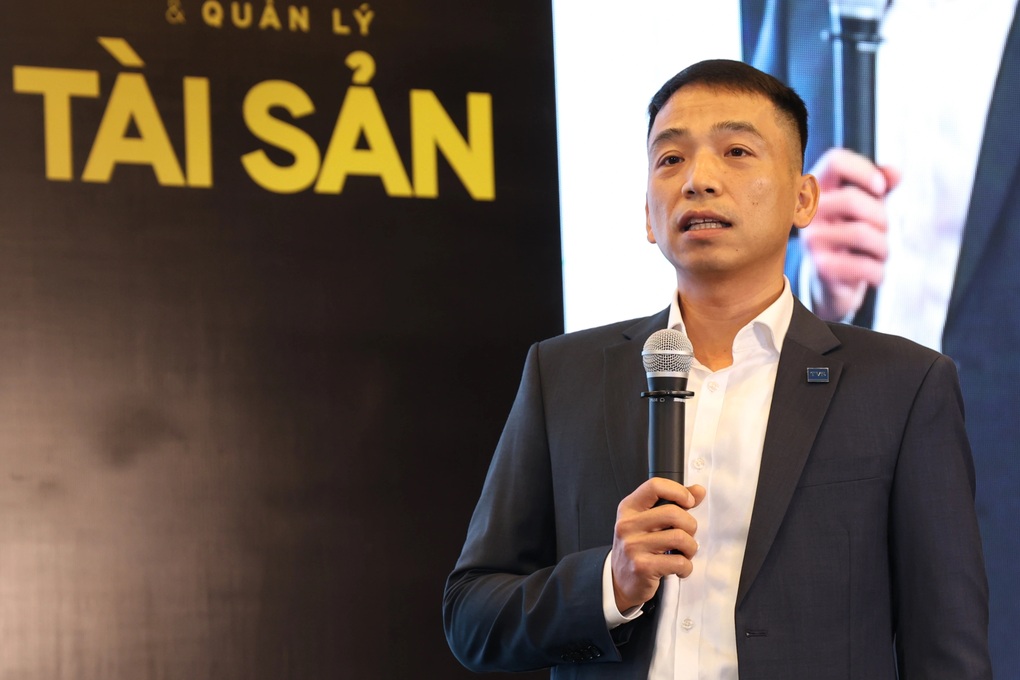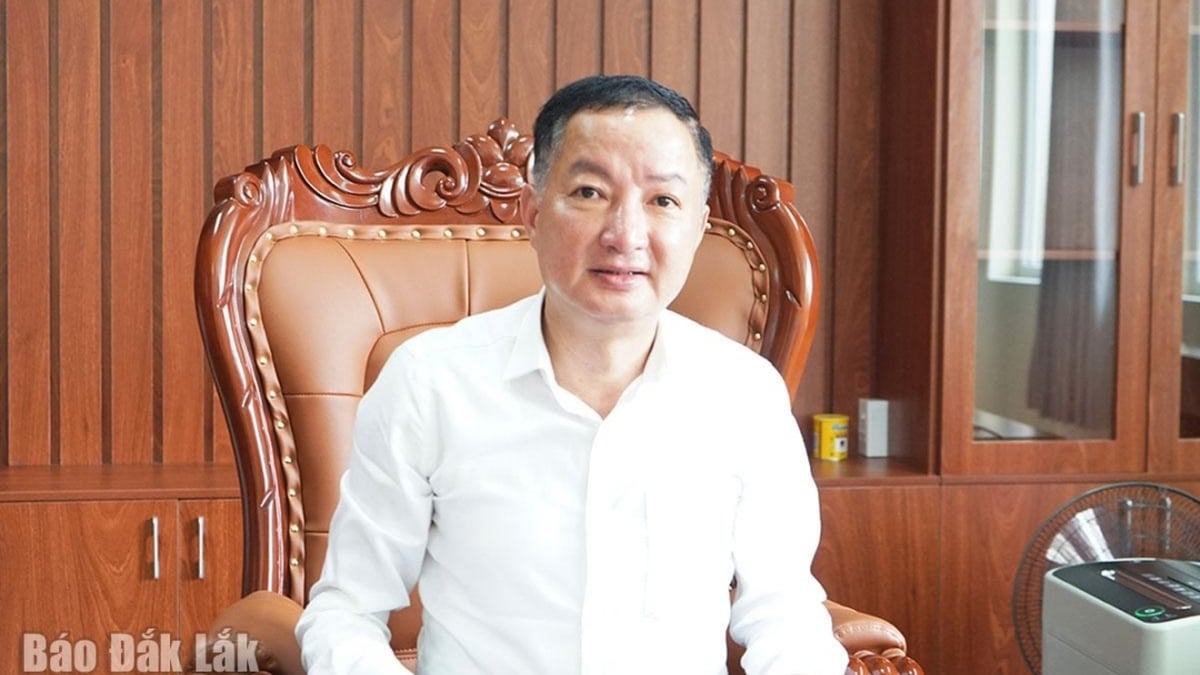80% of investors have not used digital asset management services
On the morning of July 8 in Ho Chi Minh City, Thien Viet Securities Joint Stock Company (Stock code: TVS) held the 2025 investor conference.
At the event, Mr. Bui Thanh Trung - Senior Deputy General Director of Thien Viet Securities Company (TVS) - shared the results from the 2025 survey report conducted by Thien Viet Fund Management Company with 579 investors participating in 5 major cities in Vietnam. The report shows a clear picture of the behavior and trends of personal asset management of Vietnamese people.

Mr. Bui Thanh Trung (Photo: Organizing Committee).
According to Mr. Trung, the asset allocation rate to listed stocks in Vietnam is still quite low compared to many developed markets. Specifically, this rate in the US and Singapore often exceeds 30%, in China it is about 25%, while in Vietnam and Thailand it is only around 17%.
Vietnamese people still prioritize traditional channels, notably real estate, accounting for 31% of their asset portfolio and gold at about 14%. This reflects a preference for tangible assets, things that “can be seen and held” such as real estate, gold, watches, paintings, wine or antiques.
However, Mr. Trung commented that as people's income increases, investment trends will also shift towards a more modern direction, especially increasing the proportion of investment in highly liquid assets such as stocks and fund certificates - similar to the trend in developed countries.
In the past 5 years, the 3 main investment channels have been real estate, gold and stocks. Some investors have also started to pay attention to alternative assets such as collectibles, but the proportion is still small. This trend is expected to increase rapidly thanks to improvements in income and financial awareness.
In terms of profit expectations, more than 80% of investors participating in the survey expect to achieve a profit of 7% or more per year. Of these, 41% expect a profit of 7 to 15%, while 42% aim for 15 to 30%.
Despite high expectations, 77% of survey participants said they had difficulty identifying suitable investment channels as well as making long-term financial plans. From there, Mr. Trung identified two prominent needs of investors today. One is to receive professional financial advice, and the other is to have access to new investment channels beyond traditional options.
However, accessing new investment channels still faces many barriers. Many investors lack information, are concerned about legal risks, do not trust in actual efficiency or are unclear about investment procedures.
Only about 16% of investors who know about personal asset management have used or are using digital investment platforms. Most of the obstacles for investors come from many reasons such as wanting to invest by themselves, fear of personal information leakage, lack of transparency about costs or feeling that digital products are not really suitable for their needs.
In particular, many people still want the support of a consultant instead of completely relying on technology platforms or artificial intelligence in the investment decision-making process.
Also at the event, Ms. Nguyen Anh Vien Phuong - Director of Priority Banking, Standard Chartered Bank Vietnam - commented that Vietnamese investors' investment portfolios are still focused on traditional channels, less diversified than those of developed countries.
In Vietnam, gold accounts for 15-20% of the investment portfolio, mainly physical gold. Meanwhile, in Singapore or Hong Kong (China), this ratio is almost zero and if there is any, it is “paper” gold.
Real estate investment also accounts for a large proportion, about 50%, while in developed markets such as Singapore and Hong Kong it only fluctuates between 20-30%. In contrast, the proportion of stock investment in Vietnam is below 15%, while in open markets such as Singapore and Hong Kong it reaches 30-60%.
According to Ms. Phuong, the reason is partly due to the modest financial knowledge of Vietnamese people - only about 25% of the population has basic financial knowledge, compared to 60-70% in developed countries. However, with the current economic growth rate, Ms. Phuong believes that Vietnam will gradually narrow this gap.
How do Gen X and Gen Z manage their finances differently?
Mr. Tu Tien Phat - General Director of ACB - believes that in today's flat world, the financial gap between generations is gradually narrowing. Gen X (born from 1965-1980) and Gen Z (1997-2012) are not completely opposite in financial behavior as many people think.
Mr. Phat found that both generations have things in common, but there are still clear differences. Gen X often chooses safe investments such as real estate, long-term stocks and tends to borrow money to serve large goals. In contrast, Gen Z is more flexible, likes to experience new financial instruments and often acts quickly when there are investment opportunities.
From another perspective, Mr. Do Quang Thuan - Permanent Deputy General Director of MoMo Financial Services Joint Stock Company - said that Gen Z has a completely new approach to finance. They are willing to save online with only 1 million VND, something that the previous generation rarely did.
For Gen Z, financial management is not only about efficiency but also about experience, like “playing while learning”. Behaviors such as tracking daily expenses, optimizing cash flow, or automatically withdrawing money into online savings wallets are becoming more and more popular.
Source: https://dantri.com.vn/kinh-doanh/77-nha-dau-tu-gap-kho-khan-khi-tu-quan-danh-muc-tai-san-20250708162035003.htm

































































































Comment (0)